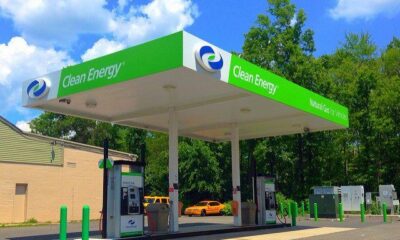

Economy
Brazilian Cities Aligning Growth with Sustainable Urban Development
A new research report, “The Contribution of Low-carbon Cities to Brazil’s Greenhouse Gas Emissions Reduction Goals” released today explores the significant opportunities for urban GHG emissions reductions in Brazilian cities, and highlights how these efforts can support broader national development goals as the urban population continues to grow.
The report outlines specific opportunities for further action, including increasing mitigation ambition in the buildings, transportation and waste sectors; it also notes the importance of ensuring that climate policies in Brazil support urban development efforts, which will address poverty and equity issues.
The report, written by Coppe UFRJ (Federal University of Rio de Janeiro) with the support of Bloomberg Philanthropies and the Stockholm Environment Institute, found that Brazil has a rapidly growing urban population – projected to reach 90 percent by 2020 – and demonstrates that infrastructure choices made to support this urban growth could significantly affect GHG emissions.
Climate action has long been a priority for Brazil. Brazil was the first major developing country to set an emission reduction target under the Copenhagen Accord, pledging to reduce emissions by 36.1 – 38.9 percent below a business-as-usual scenario.
Although Brazil has already made strides in reducing emissions from deforestation and integrating renewables in the power supply, there is room for Brazilian cities to take action and enhance mitigation ambition, particularly in the buildings, transportation and waste sectors. The report highlights that, following the Brazilian Labelling Program guidelines, Brazilian cities could achieve energy savings of 50 percent in new buildings and 30 percent in retrofits.
Infrastructure improvements to transportation and decreased reliance on personal vehicles, as outlined in Brazil’s national plan for improving urban mobility, are projected to reduce GHG emissions from road transport by 19.5 Mt CO2e by 2020. Additionally, a National Policy for Solid Waste will decrease waste generation, increase recycling and reuse, manage and dispose of solid waste properly and provide universal basic sanitation.
To complement and expedite the progress Brazil is already making, the report highlights the following opportunities for Brazilian cities to achieve low-carbon urban development:
– Work with the national government to enhance cities’ strategies – national policy changes are necessary to further unlock cities’ GHG emissions reduction potential.
– Align transportation policies with spatial planning to increase accessibility and connectivity while reducing emissions; explore shared mobility.
– Expand reforestation efforts to balance emissions and reduce uncertainty about water supply.
– Leverage political influence to raise the ambition of national mitigation commitments and push for a stronger international climate agreement.
Read the full report here.



 Environment12 months ago
Environment12 months agoAre Polymer Banknotes: an Eco-Friendly Trend or a Groundswell?

 Features11 months ago
Features11 months agoEco-Friendly Cryptocurrencies: Sustainable Investment Choices

 Features12 months ago
Features12 months agoEco-Friendly Crypto Traders Must Find the Right Exchange

 Energy11 months ago
Energy11 months agoThe Growing Role of Solar Panels in Ireland’s Energy Future





























